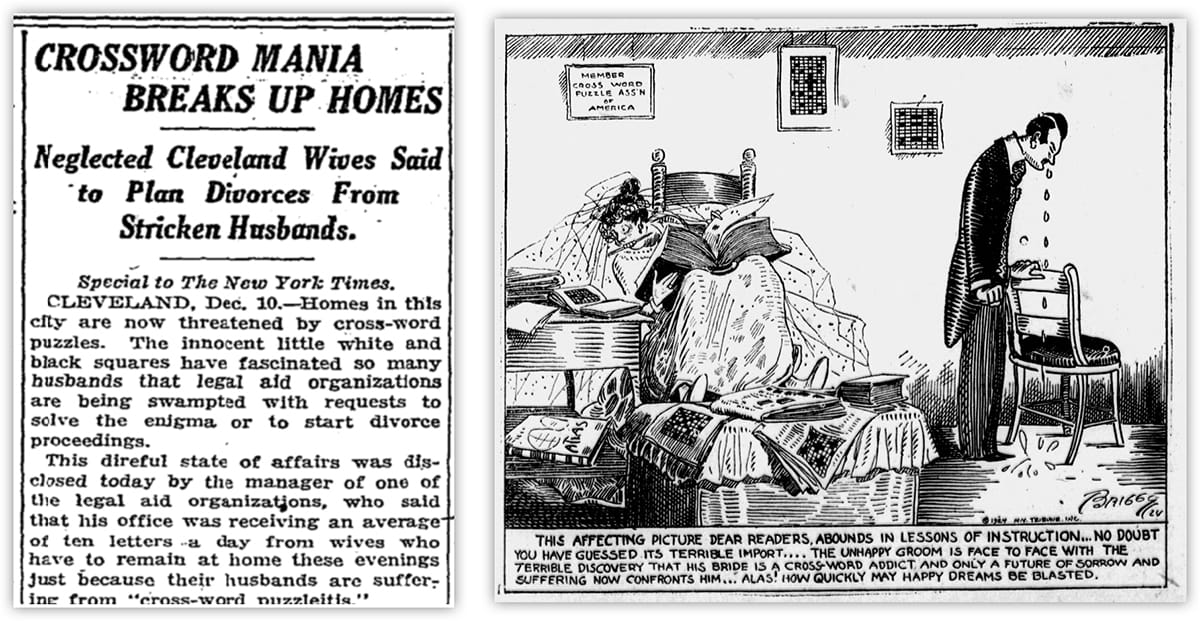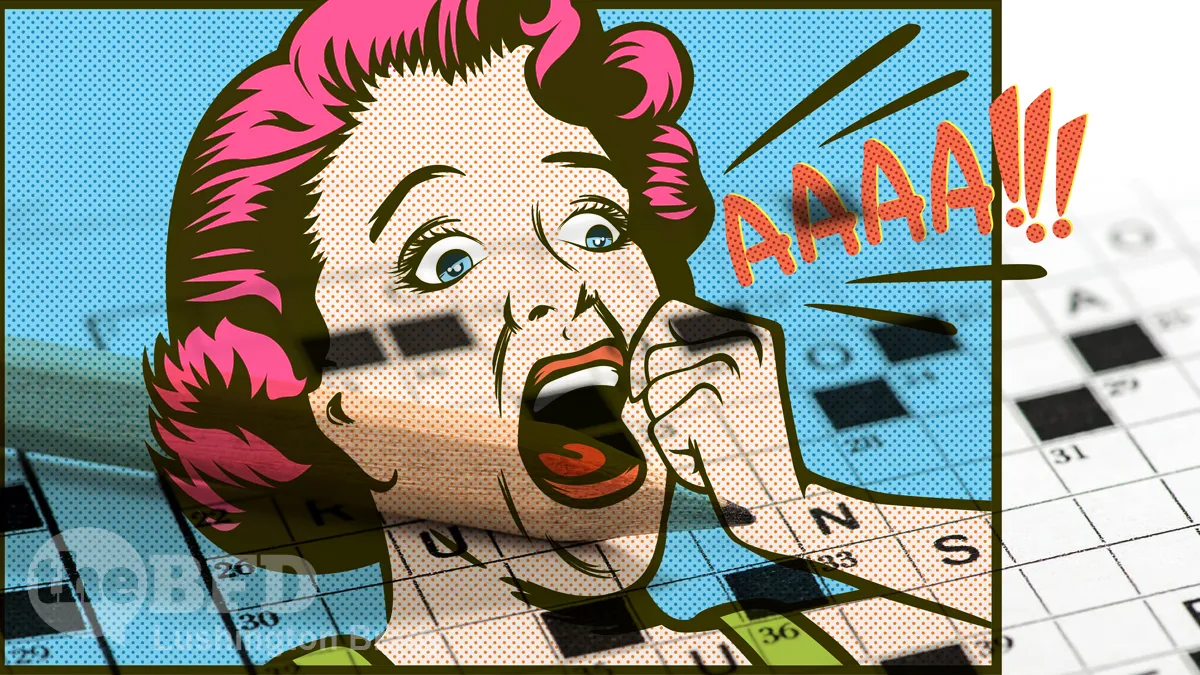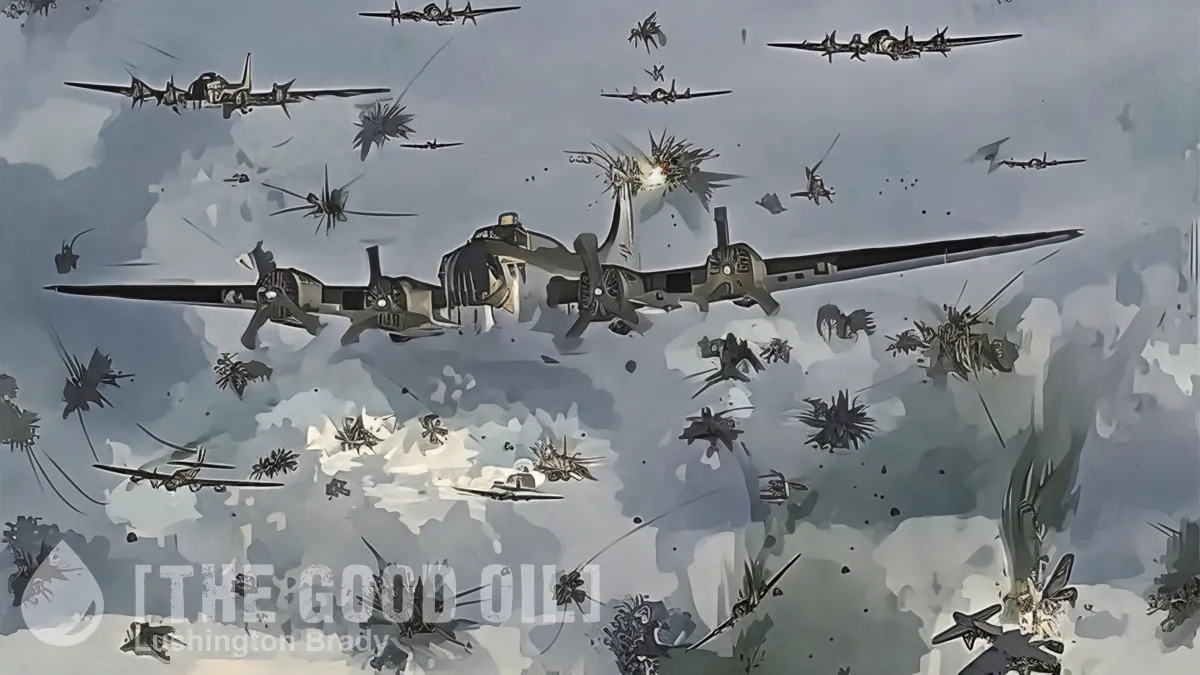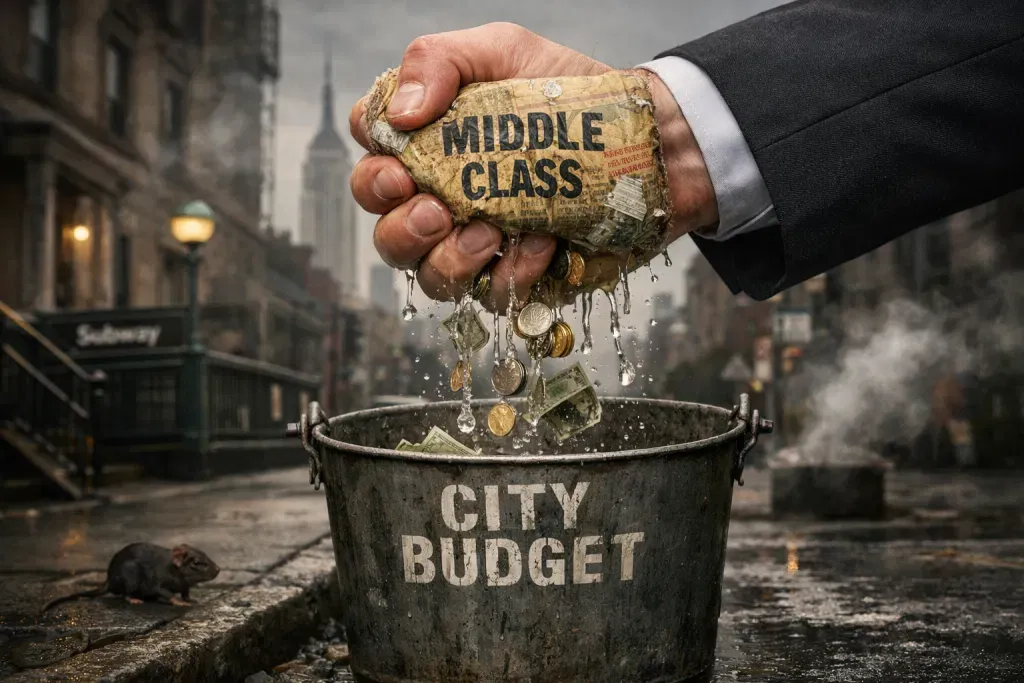Table of Contents
As the Wordle fad hits what may be its peak (whether its sale to the New York Times is the shark-jumping moment remains to be seen), there’s no shortage of curmudgeons and grumpy-gutses. “If, like me, you love words, you should hate Wordle,” grouses the Telegraph. Psychologist Pragya Agarwal has written about “why some people just hate Wordle”.
As it happens, though, people, especially the media, have a long history of hating new fads — and campaigning hard against whatever seemingly innocent pastime becomes the target of their latest moral outrage. Novels, comic books, movies, television. The so-called War of the Worlds scare was almost entirely a myth cooked up by newspapers threatened by the newfangled medium, radio.
That was, though, after they’d finished fulminating against crosswords.
Yes, crosswords.
When crossword puzzles first swept across North America in the mid-1920s, the New York Times sneered, calling them “a familiar form of madness”and the next fad after MahJong. Claims these puzzles were good mental exercise and a way to expand one’s personal lexicon, via a dictionary, were dismissed.
As always, the attacks were driven by commercial interest rather than high-mindedness. Crosswords, as it happens, were popularised by the first tabloid papers.
As far as the journalistic establishment was concerned, crosswords were another mindless fad used as a substitute for good editorial, to keep readers coming back — much like Buzzfeed quizzes were in the 2010s. Tabloids were looked upon as trashy, childish, and plebeian and were labeled the “yellow press” after one of the numerous comic strips contained within them. The New York Times would refuse to publish crosswords for another two decades.
Across the Atlantic in the United Kingdom, the Times of London reported on the U.S. crossword craze with similar disdain, using an ironically tabloidesque headline “An Enslaved America.”
With typical British snootiness, the Times decried the “the final blow to the art of conversations”.
Worse, crosswords were an economic menace!
In its estimate, over ten million people spent half an hour each day working out the puzzles when they should be working, noting “this loss to productive activity of far more time than is lost by labor strikes.” It even compared them to an invasive weed, stating “The cross-word puzzle threatens to be the wild hyacinth of American industry […] Was any age ever given over to such stultifying pastimes or labeled with signs of such mental degradation?”
Five years later, The Times printed its first crossword.
Remember “skateboarder’s elbow”? “Space Invaders wrist”? As always, the new fad was pathologised and medicalised. “Crossword puzzleitis”!
One doctor concluded “crossword puzzleitis” “stole” the memories of his patient?. “Crossword insomnia” was another phenomenon reported, akin to late-night smartphone fiddling. Optometrists claimed the habit caused headaches and weakened eyesight.
If you didn’t go blind, your marriage would break down.
Crosswords were cited as a reason for divorce in more than one case, receiving widespread press attention, including from the New York Times, which ran the headline “Crossword Mania Breaks Up Homes.” Other papers published amusing cartoons featuring weeping grooms and puzzle-engrossed brides […]
Physical assault and even murder-suicide were blamed on the crossword puzzle too.
Big Think

Then again, if you’ve ever felt the urge to murder that smart-arse who got today’s Wordle in two goes, while you struggled to the sixth line, perhaps all that might seem plausible.








